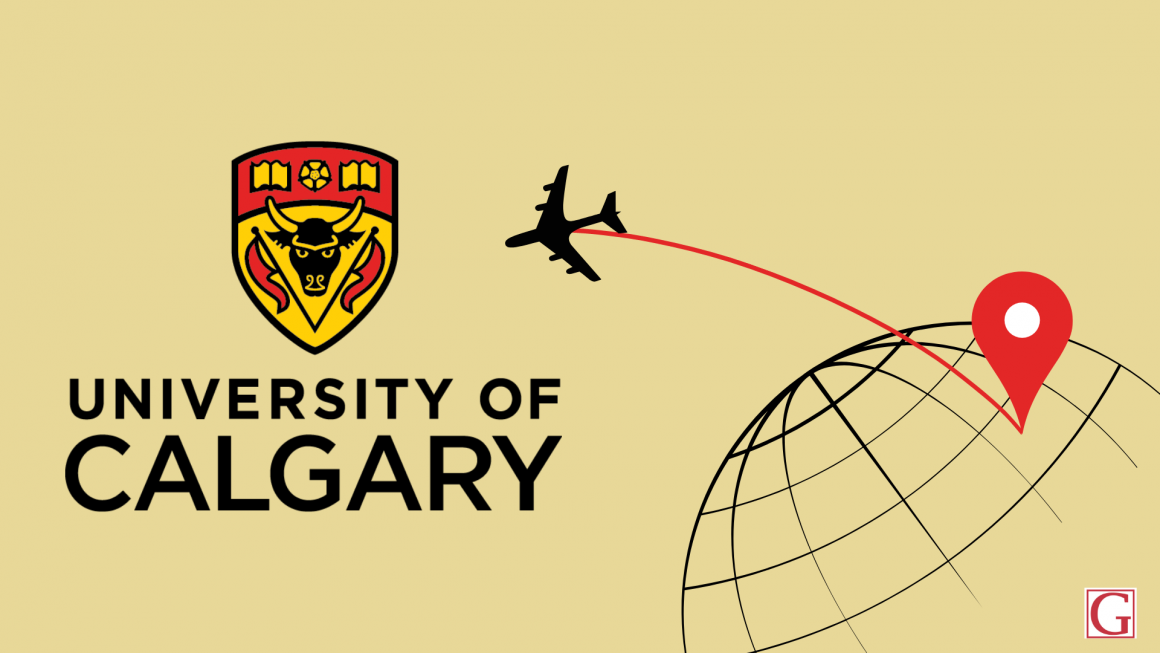
Around the World: Is the university doing enough for international students during this critical time?
By Sebastian Vasquez Gutierrez, September 24 2021—
While back-to-school energy is usually full of optimism, this year domestic and international students alike are now feeling robbed of their promised university experience. Many international students in particular, are devastated that they spent thousands of dollars traveling to Canada, quarantining and paying for living accommodations, only for classes to be switched to online learning at the very last minute. Many students have mentioned that if the return to online learning had been sooner, they would not have made the decision to travel to Canada and subsequently pay those extra fees. International students already pay around $17,000 more than domestic students, and now, they have to worry about recovering from such a large financial burden.
When asked about what the U of C is doing to support international students at this time, Dr. Susan Barker, vice-provost of student experience, said that generally, if students have questions to reach out and that the university would try its best to answer on a case-by-case basis.
“There is an SU Quality Money COVID bursary that is coming on right now, so when students indicate to us any additional financial burden, we direct them to a range of bursaries that may help support them,” said Barker. “This will be the best way to get money to students who are in financial need because they have to validate that they are in financial need, rather than give every student an ‘x’ number of dollars. When students reach out and tell us this, we direct them to these bursaries.”
While the previous SU administration did outline COVID relief in this year’s Quality Money budget, it should be noted that their online application seems to only be reserved for on-campus projects and initiatives and lacks the needed accessibility for the proposed financial assistance to students. The U of C also recently announced a new $1000 Fall 2021 Online Learning Relocation Grant for international students who accrued relocation, moving or living costs to attend in-person courses but many have already expressed dissatisfaction at how limited the financial compensation is on top of increased tuition and living costs.
Three international students living in India were interviewed by the Gauntlet to understand their perspectives and how they are handling the unfolding situation. Jaahnvi Iragavarapu is a fourth-year majoring in Psychology and minoring in Management and Society. Zaara Kudchiwala is a first-year majoring in Psychology and Simardeep Kaur is a fourth-year majoring in Communications and Media Studies.
Prior to the most recent news on the return to online classes, Kaur expressed her frustration.
“What if we get there and then the third wave hits and they shut down the university again? That is a huge financial burden.”
It has become clear that the worst fears of many international students have become a reality.
“The least the university could do is arrange [evacuation] flights for students from India to Canada directly because taking routes via three different countries is very expensive,” Kaur said. “[A] one-way flight is $4000 which is even more expensive than a round trip on normal days. I personally don’t have that much money to take a one-way flight.”
In addition to this tough financial spot many international students find themselves in, the accessibility of in-person courses for those living overseas is now being put into question. It is up to the discretion of U of C professors on whether they choose to provide virtual accommodations for their classes, should they choose to host them in person. However, many international students who have lived abroad during the pandemic, are skeptical of this.
“As an international student on the other side of the globe, [I can testify that] a lot of professors did not try to record their lectures — some did not even offer a 24-hour period for midterms,” said Kaur. “This was really tough because sometimes I would be attending lectures or writing exams until 5 a.m. I even had to take a block week class, for which I used to stay up from 9 p.m. to 6 a.m. I did not get any extra help.”
Kaur adds on to this and states that she’s most concerned about the courses she needs to graduate with.
“[U of C] would just tell us to take courses that are offered online and that might [impact] many courses I need to graduate since this is my last year,” she said. “I still don’t have much of an idea about the courses that are offered online and ones that are offered in-person. But I hope they have both options for people who aren’t able to return this fall since the flight restriction from India is still in place, and impacts me.”
As we saw with these responses, the university is trying to manage a situation that they are not familiar with, and they are trying to find possible solutions that will benefit their students. It is clear that the university has been negligent of the needs and finances of international students and we hope that they reach a possible solution for this upcoming semester.
Around the World is a column about the international student experience and a platform for the voices of those students to be heard. It aims to raise topics often avoided and issues often unspoken about as they pertain to international students at the University of Calgary. This column is a part of our Voices section.
